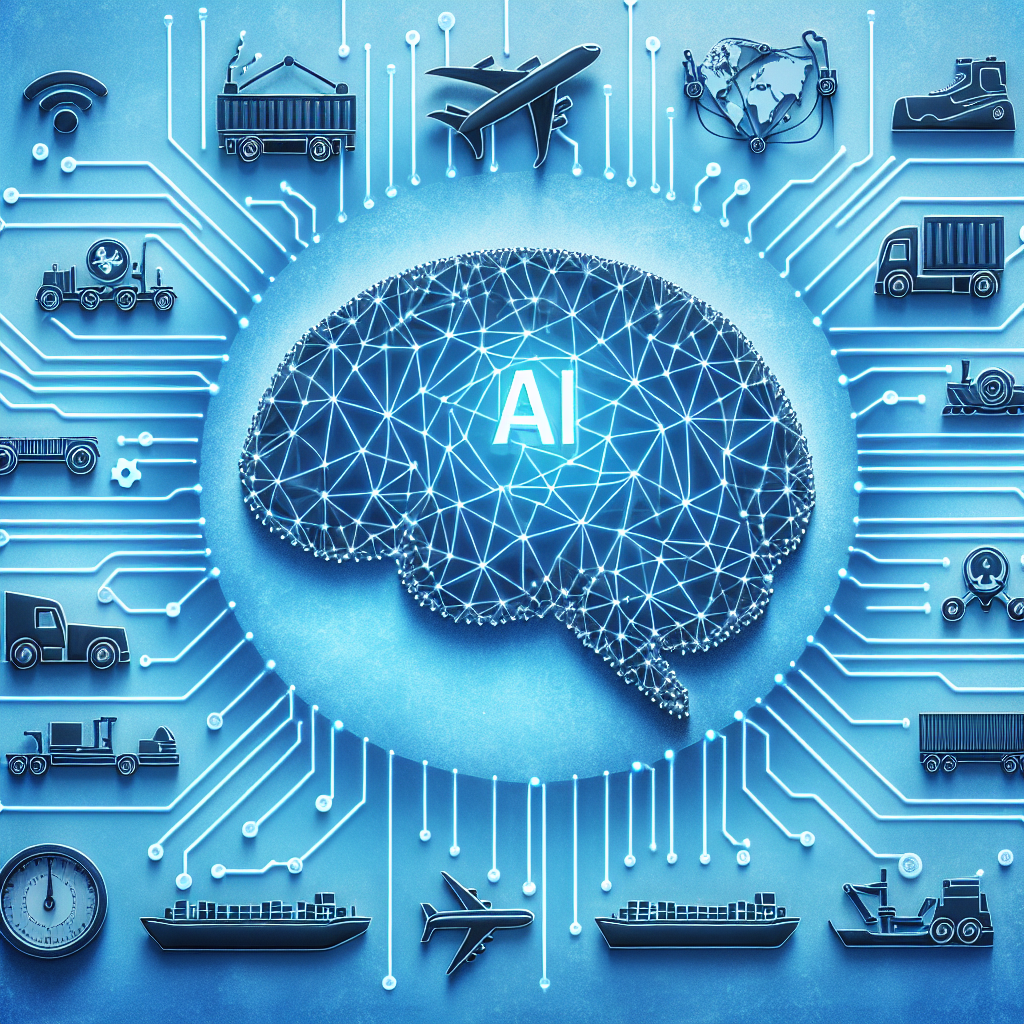In today’s fast-paced and highly competitive business environment, supply chain optimization is crucial for companies looking to maximize efficiency, reduce costs, and improve customer satisfaction. One area where optimization can have a significant impact is transportation, which plays a critical role in the overall supply chain process. With the advancement of artificial intelligence (AI) technology, companies now have a powerful tool at their disposal to help streamline and optimize their transportation operations.
AI-powered supply chain optimization refers to the use of AI algorithms and machine learning techniques to analyze vast amounts of data and make real-time decisions that improve the efficiency of transportation processes. By leveraging AI technology, companies can gain valuable insights into their supply chain operations, identify areas for improvement, and make data-driven decisions that lead to cost savings and increased productivity.
One of the key benefits of AI-powered supply chain optimization in transportation is the ability to improve route planning and scheduling. Traditional route planning methods often rely on historical data and static assumptions, which can lead to suboptimal routes, inefficient use of resources, and increased costs. AI algorithms, on the other hand, can analyze real-time data such as traffic conditions, weather forecasts, and delivery schedules to optimize routes and schedules dynamically. This allows companies to reduce transportation costs, minimize delivery times, and improve overall efficiency.
Another important aspect of AI-powered supply chain optimization in transportation is predictive maintenance. By using AI algorithms to analyze data from sensors and other sources, companies can predict when vehicles and equipment are likely to experience failures or breakdowns. This enables proactive maintenance measures to be taken, reducing the risk of unexpected downtime, costly repairs, and delays in transportation operations. Predictive maintenance can also help companies extend the lifespan of their assets, improve safety, and reduce maintenance costs.
AI technology can also be used to optimize inventory management in transportation. By analyzing demand forecasts, inventory levels, and delivery schedules, AI algorithms can help companies determine the optimal inventory levels to maintain at different locations. This can reduce excess inventory, minimize stockouts, and improve overall inventory turnover rates. By optimizing inventory management, companies can lower carrying costs, improve order fulfillment rates, and enhance customer satisfaction.
In addition to route planning, predictive maintenance, and inventory management, AI-powered supply chain optimization can also be used to optimize load planning, carrier selection, and freight pricing. By analyzing historical data, market trends, and customer preferences, AI algorithms can help companies make informed decisions about how to best allocate resources, select the most cost-effective carriers, and negotiate favorable freight rates. This can lead to significant cost savings, improved service levels, and increased competitiveness in the marketplace.
Overall, AI-powered supply chain optimization in transportation offers companies a powerful tool to improve efficiency, reduce costs, and enhance customer satisfaction. By leveraging AI technology to analyze data, make real-time decisions, and optimize transportation processes, companies can gain a competitive edge in today’s complex and dynamic business environment.
FAQs:
Q: What is AI-powered supply chain optimization?
A: AI-powered supply chain optimization refers to the use of AI algorithms and machine learning techniques to analyze data, make real-time decisions, and optimize supply chain processes such as transportation, inventory management, and demand forecasting.
Q: How can AI help optimize transportation in the supply chain?
A: AI technology can help optimize transportation in the supply chain by improving route planning and scheduling, predicting maintenance needs, optimizing inventory levels, and making informed decisions about load planning, carrier selection, and freight pricing.
Q: What are the benefits of AI-powered supply chain optimization in transportation?
A: The benefits of AI-powered supply chain optimization in transportation include reduced transportation costs, improved delivery times, increased productivity, enhanced customer satisfaction, and a competitive edge in the marketplace.
Q: How can companies implement AI-powered supply chain optimization in transportation?
A: Companies can implement AI-powered supply chain optimization in transportation by investing in AI technology, collecting and analyzing relevant data, integrating AI algorithms into their existing systems, and training employees to use AI tools effectively.
Q: What are some challenges of implementing AI-powered supply chain optimization in transportation?
A: Some challenges of implementing AI-powered supply chain optimization in transportation include data security and privacy concerns, technical barriers to integrating AI algorithms into existing systems, and the need for ongoing training and support for employees using AI tools.

